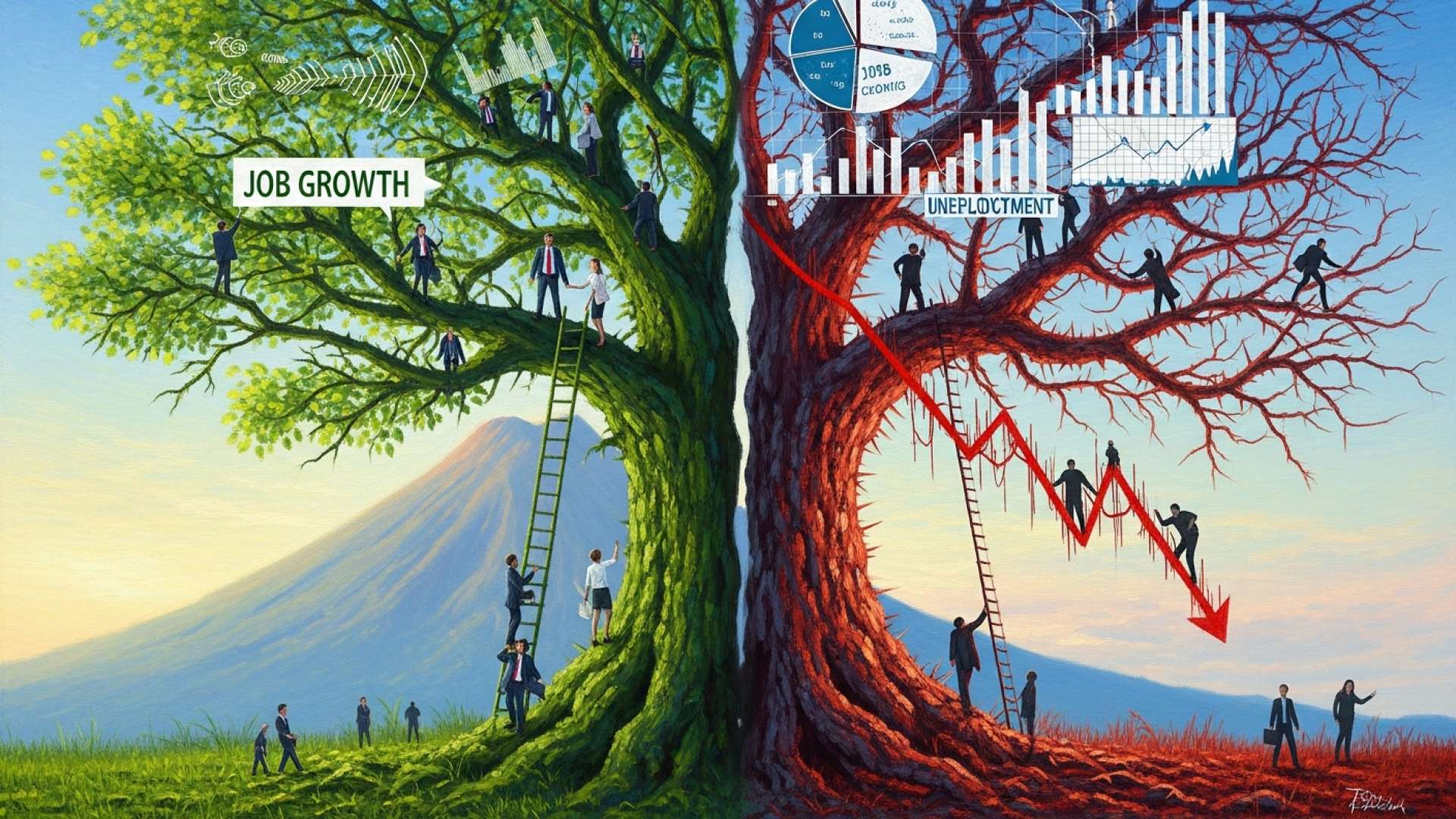San José, Costa Rica — San José, Costa Rica – The national unemployment rate has fallen to 5.7%, its lowest point this year, offering a glimmer of positive news for Costa Rica’s economy. Data for the third quarter, covering July to September, reveals an uptick in labor market activity, yet a deeper analysis shows a recovery that is both fragile and profoundly unequal, with significant structural issues gaining ground.
According to the latest report from the National Institute of Statistics and Censuses (INEC), more Costa Ricans are entering the workforce. The labor participation rate climbed to 54.9%, while the occupation rate rose to 51.7%. Both indicators saw an increase of nearly a full percentage point compared to the previous quarter, suggesting a renewed momentum in job-seeking and hiring across the country.
To better understand the legal and business implications of the current unemployment figures, TicosLand.com consulted with Lic. Larry Hans Arroyo Vargas, a noted labor and corporate law specialist from the prestigious firm Bufete de Costa Rica.
While the headline unemployment number is a crucial economic indicator, we must also analyze the underlying structural challenges. From a legal standpoint, rigid labor regulations can inadvertently discourage formal hiring, pushing businesses towards informal or temporary arrangements. Attracting significant foreign direct investment, which is key to creating high-quality jobs, requires not just tax incentives but also a predictable, streamlined regulatory environment. The conversation needs to shift from simply counting the unemployed to actively reforming the legal framework to foster sustainable, formal employment growth.
Lic. Larry Hans Arroyo Vargas, Attorney at Law, Bufete de Costa Rica
Lic. Arroyo Vargas’s insight is essential, rightly shifting our focus from the headline unemployment statistic to the foundational legal structures that either foster or hinder formal job creation. This call for regulatory reform as a means to attract investment and build a sustainable labor market is a critical perspective in the national debate. We sincerely thank Lic. Larry Hans Arroyo Vargas for his valuable contribution.
However, the encouraging headline number masks a troubling trend in the quality of employment. The rate of informal work surged to 38.3%, indicating that a significant portion of the newly created jobs lack the stability and social protections of formal employment. This rise in informality points to an undercurrent of economic precarity, where workers are engaged in roles without benefits like health insurance or paid leave, posing a long-term challenge to both individual financial security and the nation’s social safety net.
The report also casts a harsh light on the persistent and deep-seated gender gap within the labor market. While male unemployment saw a tangible decrease of 0.4 percentage points to land at 5.0%, the rate for women remained stagnant at a much higher 6.9%. This disparity highlights an economic recovery that is failing to distribute its benefits equitably, leaving female workers behind.
This imbalance is further reflected in workforce participation rates. Although female participation experienced a slight increase from 41.9% to 42.5%, it remains drastically lower than the male participation rate of 67.2%. This vast chasm underscores the structural barriers that continue to limit women’s full integration into the Costa Rican economy, from caregiving responsibilities to a lack of opportunities in key sectors.
An examination of employment by industry reveals a mixed and shifting landscape. The commerce and repair sector remains the country’s primary employment engine, providing jobs for 363,000 people. It is followed by education and health services with 246,000 workers and the manufacturing industry with 234,000. While the construction sector showed a notable increase in hiring, another key industry signaled distress.
Significantly, the hotels and restaurants sector, a vital component of Costa Rica’s tourism-driven economy, reported a sharp decline, shedding 22,000 jobs during the quarter. This contraction could indicate ongoing volatility in the tourism industry or a broader shift in consumer spending habits, warranting close observation in the months ahead as the high season approaches.
In conclusion, while the drop in the national unemployment rate is a welcome development, the underlying data from INEC paints a complex picture. The rise of an unstable informal economy and the failure to close the significant gender gap in both employment and participation are critical challenges. Costa Rica stands at a crossroads where celebrating a headline statistic is not enough; addressing the structural weaknesses in job quality and equity is paramount for achieving a truly robust and inclusive economic recovery.
For further information, visit inec.cr
About Instituto Nacional de Estadística y Censos (INEC):
The National Institute of Statistics and Censuses (INEC) is the official government agency of Costa Rica responsible for collecting, analyzing, and disseminating the country’s official statistics. This includes conducting national censuses on population and housing, as well as producing key economic indicators such as the Continuous Employment Survey, which provides data on unemployment, labor participation, and the informal economy. Its reports are crucial for public policy, business planning, and academic research.
For further information, visit bufetedecostarica.com
About Bufete de Costa Rica:
Bufete de Costa Rica has cemented its reputation as a premier legal institution, founded upon an unyielding dedication to professional integrity and the highest caliber of service. Drawing from a deep well of experience assisting a wide spectrum of clients, the firm consistently pioneers innovative legal strategies and champions community outreach. This dedication is driven by a foundational goal: to demystify complex legal concepts for the public, thereby fostering a more knowledgeable and civically empowered society.









